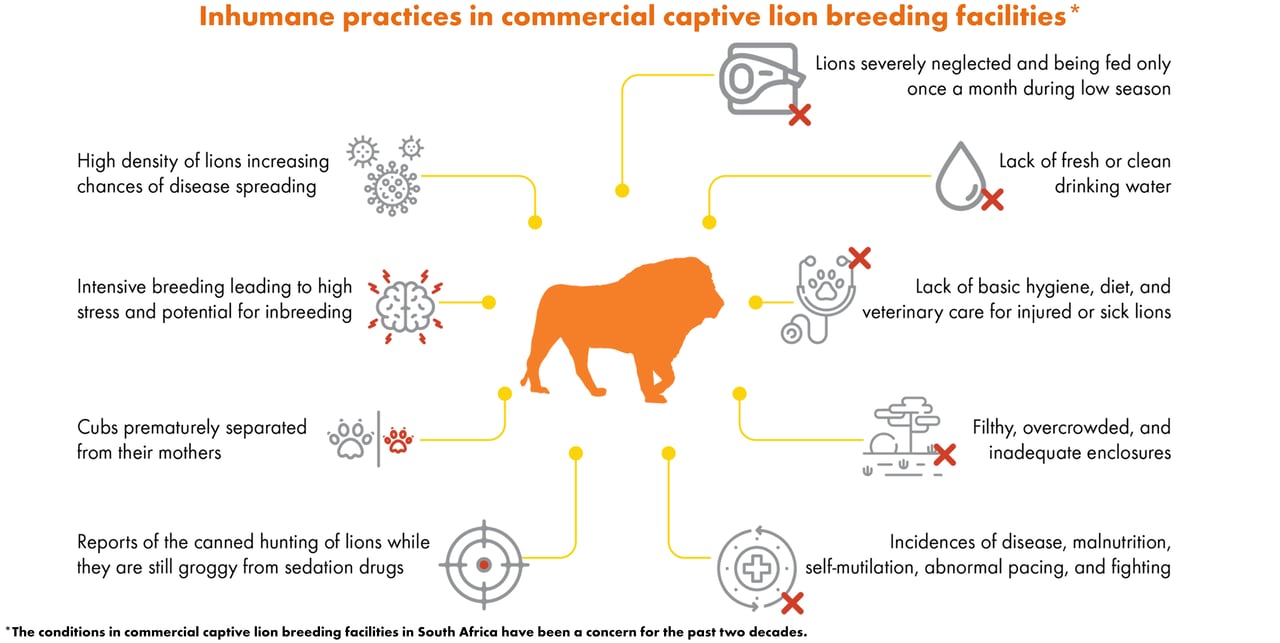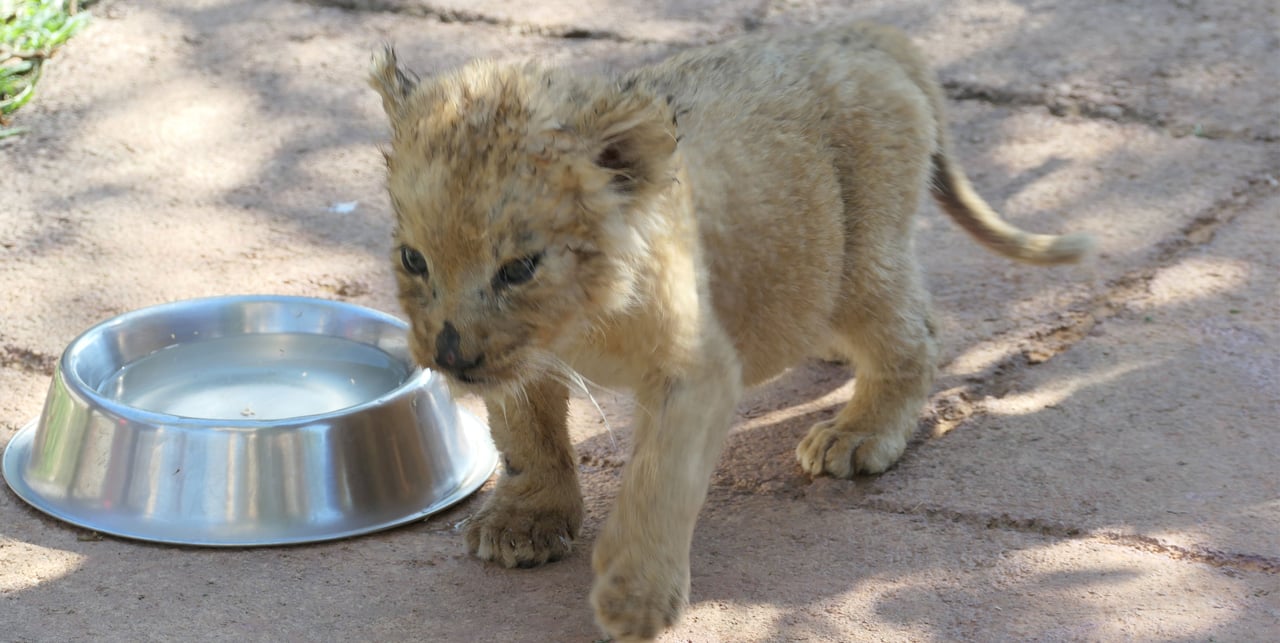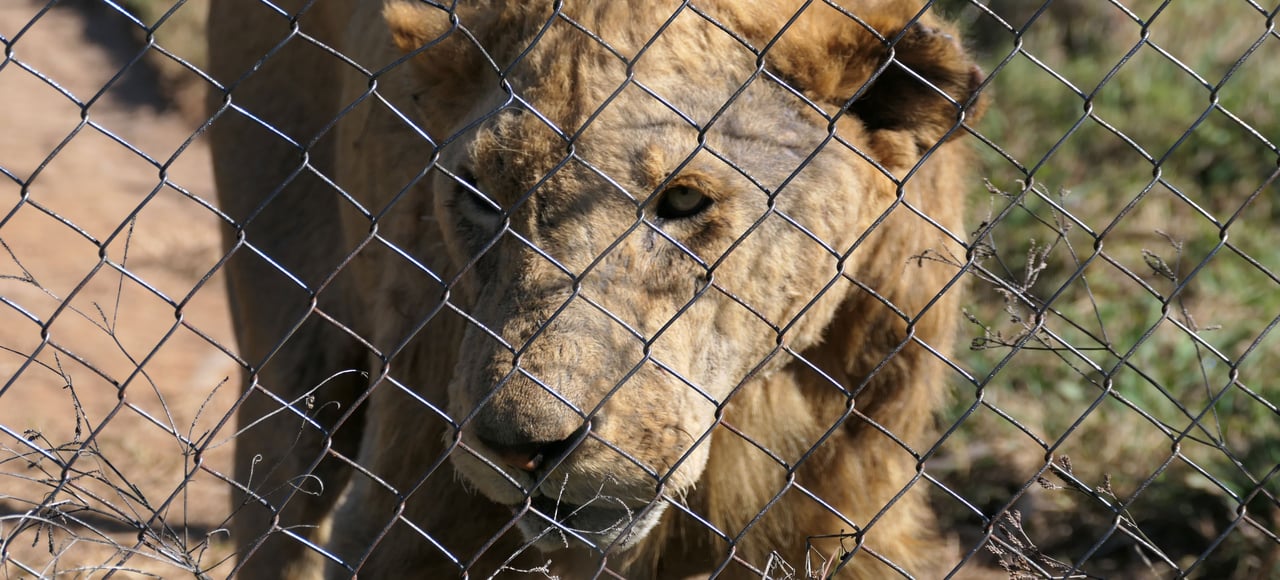South Africa's commercial captive lion breeding industry has drawn global attention for its practices and impact on wildlife conservation. This industry is marked by several concerns and challenges that need urgent attention.
Despite the government's announcement to phase out the industry in 2021, World Animal Protection has new evidence of cruel and illegal activity at “secret” lion farms.
Our anonymous sources described how some lions are being deliberately starved during the low-hunting season to save money and how some lions are being released for canned trophy hunting while still sedated.
Uncovering the industry's disturbing impact on innocent wildlife and society, a new report 'Putting a stop to cruelty: why South Africa's commercial captive lion industry should be shut down for good' shines a light on the heart-wrenching accounts of cruelty and illicit practices that persist in this grim trade.
Warning: This report contains graphic imagery some readers may find upsetting.
Understanding the Issues
1. Lion Breeding for Trophy Hunting
One of the primary concerns is the breeding of lions for trophy hunting. These practices have raised ethical questions worldwide and cast a shadow on South Africa's conservation efforts.
2. Canned Hunting
The industry often engages in "canned hunting" where lions are bred and raised in confined spaces and then released into controlled environments for hunters. This practice is criticised for its lack of fairness and ethics.
3. Welfare of Captive Lions
The welfare of captive lions is another pressing issue. These animals face poor living conditions, limited space, and inadequate care, raising concerns about their overall well-being.
4. Conservation and Biodiversity
The industry's practices have also raised concerns about the impact on lion conservation and the broader biodiversity of South Africa.

Calls for change
Regulation and Legislation:
Advocates and organisations like ourselves are pushing for stricter regulations and legislation to improve the welfare and treatment of captive lions.
Education and Awareness:
Raising public awareness about the issue and promoting responsible tourism practices can contribute to change.
Supporting Ethical Conservation Efforts:
Supporting initiatives that focus on the conservation of lions in their natural habitats is vital for their long-term survival.

In the photo: Cub that looks weak and with sickness in direct contact with visitors, generating concern in terms of public safety. Credit: World Animal Protection/Roberto Vieto
What can I do to help?
We encourage the global audience to learn about this issue, sharing this crucial information far and wide, igniting outrage and awakening empathy.
We implore South Africans to sign up as a citizen advocate and join the #PrideNotCruelty campaign to help end the suffering of between 8,000 - 10,000 lions.
Join the #PrideNotCruelty campaign
Together, we can shape a sustainable future for people and wildlife.
